How Much Privacy Will The Driver Privacy Act Provide?
A bipartisan group of United States Senators has revealed the “Driver Privacy Act”, which is supposed to put you back in charge of your black-box data in your car. But how effective will that legislation be?
NHTSA Submits Rear Visibility Rule to White House, May Mandate Backup Cameras
After several delays, on Dec. 25th, the National Highway Traffic Safety Administration submitted a proposed revised regulation to the White House that could mandate automakers to equip cars and light trucks with backup cameras. According to Automotive News, the regulation will be part of new rear visibility standards for passenger vehicles sold in the U.S and the rationale for the backup cameras is to prevent children from being injured or killed by drivers that don’t see them behind their cars when traveling in reverse. NHTSA estimates that backup cameras would save about 100 lives a year.
No details on the planned standards have been released yet.
October Sales Briefly Slowed Due To Shutdown
What has the shutdown (and near-meltdown) of the United States government wrought in its wake? Delayed unemployment reports, a belated spotlight upon the broken ACA website, and of course, apprehension among customers looking for their next car to lease or buy. But now that the cans have been kicked hard down the road… again, the showrooms are back in business as if our elected leaders hadn’t gone mad in the first place.
WaPo: Kill The EV Tax Credit!
An op-ed piece in The Washington Post praises the wisdom of Congress that refused to renew the 45-cent-per-gallon tax credit for corn-based ethanol and the 54-cent-per-gallon tariff on imported ethanol, thereby exposing alcohol to the rough treatment of the market. Also not extended was the tax credit for installing a charger at home or in a commercial location.
The WaPo thinks killing the $6 billion incentive to turn corn into fuel, and letting EV owners buy their own charger was righteous, but only a half-measure. Congress should have finished the job and should have finished handing out $7,500 tax credits to buyers of EVs. The WaPo thinks it’s a waste, and the technology is going nowhere.
66 House Reps Move To Block 2017-2025 CAFE Proposal
The Detroit News reports that 66 US Representatives wrote to the House Appropriations Committee today to urge a measure blocking the EPA from regulating fuel economy in the 2017-2025 period. The letter, signed by 64 Republicans and three Democrats requests
A one-year ‘time out’ is necessary as EPA and (California) are setting national fuel economy standards without explicit authorization by Congress, under laws not designed to regulate fuel economy
According to the DetN, “the proposal would let the National Highway Traffic Safety Administration go forward with setting fuel economy requirements, but under the law it could only set new requirements through 2021.” And unlike past battles over CAFE, opposition this time around does not appear to be coming from the OEMs, but from NADA, the new car dealer lobby group. The only OEM to not sign onto proposed 2017-2025 standards is Volkswagen, which is reportedly in talks with regulators over the proposal.
US House Committee Blasts National Toll Road Bank Proposal
A top congressional leader on Wednesday made clear his opposition to President Obama’s idea of spending $10 billion to create a national infrastructure bank ( view details). The bank, part of the White House jobs bill, would offer public subsidy for the financing of “public private partnerships” — which most often would take the form of a toll road. The chairman of the US House Transportation Committee said at a hearing the president’s plan would not advance.
“A national infrastructure bank is dead on arrival in the House of Representatives,” Chairman John Mica (R-Florida) said. “If you want a recipe to put off job creation, adopt that national infrastructure bank proposal.”
Chevy-Dealing Congressman: "There Is No Market" For The Volt
In addition to being a representative from Pennsylvania, Republican Mike Kelly is also a Chevrolet dealer whose family has sold Chevys since 1953. But in recent hearings on government fuel economy ratings, he laid into his brand’s green halo car, the Chevy Volt with surprising zeal. Or, not-so-surprising, when you realize that he decided to run for congress in the wake of the bailout-era dealer cull.
I’m a Chevrolet dealer… we have a Chevy Volt on the lot, it’s been there now for four weeks. We’ve had one person come in to look at it, just to see what it actually looks like… Here’s a car that costs $45,763. I can stock that car for probably a year and then have to sell it at some ridiculous price. By the way, I just received some additional information from Chevrolet: in addition to the $7,500 [federal] tax credit, Pennsylvania is going to throw another $3,500 to anybody foolish enough to buy one of these cars, somehow giving them $11,000 of taxpayer money to buy this Volt.
When you look at this, it makes absolutely no sense. I can stock a Chevy Cruze, which is about a $17,500 car and turns every 30 to 40 days out of inventory… or I can have a Volt, which never turns and creates nothing for me on the lot except interest costs… So a lot of these things that we’re seeing going on have a tremendous economic impact on people who are being asked to stock them and sell them. There is no market for this car. I do have some friends who have sold them, and they’re mostly to people who have an academic interest in it, or municipalities who are asking to buy these cars.
With dealers like that, who needs competitors? Seriously, Kelly even says he fired the guy who ordered a Volt for his dealership… which he then counts against the Volt’s job creation record. Hit the jump for the rest of his quote.
Anwyl: CAFE Proposals "Ignore Consumers" Who Are "Not On Board"
The Congressional Subcommittee on Regulatory Affairs, Stimulus Oversight and Government Spending held hearings this week on proposed CAFE standards, as part of Chairman Darryl Issa’s investigation of the regulations. The first panel’s testimony can be seen in its entirety in the video above (all prepared testimony can be found in PDF format here), and it’s worth watching. Though the predictable D.C. partisanship certainly shows up, Anwyl’s testimony was the highlight the hearing, being a tough but fair analysis of the standards. Hit the jump for a brief roundup.
Witchgraph
Remember when cars, especially Toyotas, suddenly had a mind of their own, started accelerating, leaving their drivers helpless and hapless? It was in the beginning of 2010. The media cited scores of allegedly killed people. Source: The NHTSA complaint database. When complaints skyrocketed, the media wrote about a dramatic increase of complaints. Now, have a look at the graph above.
EPA Inspector General Questions GHG Emissions Science, Issa Attacks On All Fronts
In a report released earlier this week [ PDF], the EPA Inspector General criticized the Technical Support Document for the portion of greenhouse gas regulation dealing with “Endangerment,” or the possible effects of greenhouse gasses. Inspector General Arthur A. Elkins Jr. summed up his office’s findings [ PDF], writing
The OIG evaluated EPA’s compliance with established policy and procedures in the development of the endangerment finding, including processes for ensuring information quality. We concluded that the technical support document that accompanied EPA’s endangerment finding is a highly influential scientific assessment and thus required a more rigorous EPA peer review than occurred. EPA did not certify whether it complied with OMB’s or its own peer review policies in either the proposed or final endangerment findings as required. While it may be debatable what impact, if any, this had on EPA’s finding, it is clear that EPA did not follow all required steps for a highly influential scientific assessment. We also noted that documentation of events and analyses could be improved.
Oy vey. Greenhouse gas science controversy. So, what’s the problem really about?
Why Did Ford Drop Its Bailout Ad? House Oversight Chair Investigates
Senators Franken And Coons Question OnStar Over New Policies
Editor’s note: When I wrote about OnStar’s latest round of privacy concerns, I didn’t realize that the chairman of the Senate Judiciary subcommittee on privacy, technology and the law had voiced his own concerns in a letter published just the day before. Here is the letter, as published at Senator Franken’s website. OnStar has already said it will respond to specifically to the concerns of Senators Franken and Coons.
Ms. Linda Marshall, President
OnStar Corporation
400 Renaissance Center
Detroit, MI 48265
Dear Ms. Marshall:
We are writing to express our serious concern with OnStar’s announcement earlier this week that it would continue to track the GPS locations of its customers’ vehicles even if those customers have affirmatively ended their contractual plans with OnStar. In this email announcement, OnStar informs its current and former subscribers that it reserves the right to track their locations “for any purpose, at any time.” It appears that the only way to stop this tracking is to actually call OnStar and request that the data connection between OnStar and the vehicle be terminated; this service is not available online. OnStar further reserves the right to share or sell location data with “credit card processors,” “data management companies,” OnStar’s “affiliates,” or “any third party” provided that OnStar is satisfied that the data cannot be traced back to individual customers. See OnStar, Privacy Statement: Effective as of December 2011. In a nutshell, OnStar is telling its current and former customers that it can track their location anywhere, anytime—even if they cancel their subscriptions—and then give or sell that information to anyone as long as OnStar deems it safe to do so.
Republicans Attempt To Gut CAFE Through EPA Funding Bill
With the high political drama surrounding America’s debt ceiling crisis, last Friday’s CAFE announcement received much less attention from the media than it might have. But, flying even further beneath the radar is an attempt by Republicans to undo the fuel economy agreement that was the result of long negotiations. According to the NYT, some 39 “anti environmental” riders were attached to an Interior Department and EPA appropriations bill, including one which reads
Sec. 453. None of the funds made available under this Act shall be used— (1) to prepare, propose, promulgate, finalize, implement, or enforce any regulation pursuant to section 202 of the Clean Air Act (42 U.S.C. 7521) regarding the regulation of any greenhouse gas emissions from new motor vehicles or new motor vehicle engines that are manufactured after model year 2016 to address climate change.
Though one rider, which would have prevented any new listings on the Endangered Species Act lists of threatened and endangered species, was defeated, the NYT reports that the fuel economy rider is still pending. Politico adds that the bill is scheduled to go to the House floor today, but that President Obama is already threatening to veto the bill. Having worked with California, environmental groups and the auto industry to hammer out a compromise, it’s unlikely that the White House will approve any final bill that includes a measure to gut the new 2016-2025 standard… but the fact that Republicans are trying to eliminate the EPA’s ability to regulate fuel economy indicates that someone, somewhere wouldn’t mind seeing the newly-approved CAFE standard gutted.
Quote Of The Day: Nobody Compromises Like CAFE Negotiators Edition
Congress Does The Detroit Auto Show, Taxpayers Foot The Bill
Photo Credit: Autoblog Green
It’s getting a little predictable. Go to a big car event like the North American International Auto Show or the Society of Automotive Engineers (SAE) World Congress and you’re going to see politicians and government officials. I suppose that’s to be expected, but to be honest, I’m a little ticked off at how our public servants get a large megaphone at those events without bearing any of the costs that you, I, or a car company would have to pay for for the same treatment.
For the past three years particularly because of the meltdown of the domestic automakers, the bailout and the US Treasury’s subsequent stakes in GM (still held) and Chrysler (divested so that Fiat could own more), but really since the beginning of time, politicians and auto shows went together. I remember, after a press conference where Wayne County (MI) executive Robert Ficano exchanged gifts with the chairman of the People’s Army owned automaker Changfeng, asking Mr. Ficano just how many Changfeng employees voted in Wayne County. During the ’08 presidential election, most of the primary candidates on the Republican side visited the show’s press preview.
GM To DC: Take A Look At Me Now
MI Congressional Delegation: 56.2 MPG CAFE Proposal "Not Feasible"
An anonymous tipster has sent us a copy of a letter from the Michigan congressional delegation to President Obama [ PDF here, or hit the jump for an embedded copy], which calls his proposal for a 56.2 MPG CAFE standard by 2025 “overly aggressive and not reasonably feasible.” The letter is remarkable in the sense that the major signatories are Democrats, and yet it attacks the President’s proposal with more vigor than many inside the industry. The letter also confirms that that the Detroit-based automakers already rely on CAFE’s “credit” loopholes in order to meet the 2012-2016 standard, a stunning admission of how far behind Detroit still lags in fleet fuel economy. And rather than taking responsibility for their situation, the MI representatives blame CAFE for Detroit’s low fleet efficiency, arguing that “manufacturers that produce primarily smaller vehicles will have an unfair advantage.” Moreover, the MI reps don’t just admit that Detroit is behind its competition, but even goes as far as to argue that “the overall targets currently proposed may exceed what is technologically achievable for the the US automakers that produce and sell the majority of the larger pickup trucks and sport utility vehicles that US families and businesses -and tens of thousands of autoworkers- depend on.”
In short, the letter strikes me as a shockingly old-school display of excuses and apologia that stands in sharp contrast to the “green car revival” narrative that Detroit and D.C. pushed so hard during the bailout. And frankly, I’d be embarrassed if I ran one of the largest automakers in the world and I was reduced to pleading my inability, on technological grounds no less, to achieve a 56.2 MPG fleet average (which in “window sticker” terms, translates to about 41 MPG EPA) within 15 years… even though CAFE is riddled with loopholes that make it easier to continue building thirsty trucks. If Detroit were actually leading the charge for a gas tax (or offering any kind of market-driven alternative), it might have some credibility on this issue, but as things stand this strikes me as nothing more than whining. So much for America’s “can-do” spirit…
Frustrations Flare At GM Bailout Hearings: Did Ron Bloom Perjure Himself?
Well, I just wrote about 1,500 words on this topic which our post editor just obligingly disappeared into the digital void, wiping out over an hour of work. This was, perhaps, an appropriate turn of events, however, as the majority of those 1,500 words were used to describe the frustrating political stalemate that played out over the last two days of hearings on “The Lasting Implications of the GM Bailout.” The dynamics of the government’s exit from GM seem to have changed little since I wrote “Government Motors: The Exit Strategy,” and the hearings focused on the political implications of the bailout. Having determined that the bailout will help the President’s reelection in midwestern states, the White House (as represented by auto task force member Ron Bloom) sought to retrench its “things would have been worse” position, and Republicans attacked on all fronts for the very same reason. The government’s favorable treatment of UAW-represented workers, especially in comparison to Delphi’s non-UAW retirees was a major point of attack, and the committee caused Bloom deny (under oath) having ever said that “I did this all for the unions,” despite the fact that both the Detroit News’s David Shepardson and Bloom’s task force colleague Steve Rattner have quoted him directly. Emails obtained by The Daily Caller were also presented as ( more) evidence that the government intervened in a number of day-to-day decisions at GM, including the Delphi retiree issue.
Ultimately, the Republicans landed some serious body blows on the policy, although nothing radically new was presented. Bloom, meanwhile, defended the bailout by arguing that the alternative would have been much worse. In short, the political stalemate over the auto bailout continues… much to GM’s dismay. And since insiders are indicating that any collusion to boost GM’s stock price in order to improve the taxpayers’ return would be worse than a larger loss, a $10b+ loss is as good as guaranteed. Which means the Republican attacks will continue and the political trench warfare over the issue will only continue.
Senate Votes To Repeal Ethanol Tax Credits
Cracks continued to in the ethanol industry’s once-impregnable political vanguard, as the San Francisco Chronicle reports that the Senate has voted to roll back the Volumetric Ethanol Excise Tax Credit (VEETC) as well as import tariffs on foreign-produced ethanol. This rollback of multi-billion-dollar ethanol credits failed earlier in the week, when the Detroit News reports automakers came out in opposition of a bill that would have required that 95% of all cars built in the US be capable of running 85% ethanol by 2017. The Senate did fail to pass a repeal of a government ethanol blending mandate that underpins the VEETC, however, and funding is moving forward for ethanol blending pumps. Still, the Senate’s repeal of VEETC alone means taxpayers could save over $5b per year on subsidies, and as one expert puts it
“Looks like we’re going to be relying on the biofuels mandates to make sure blenders use biofuels, rather than bribing them to use it with $6 billion,” [Bruce Babcock, professor of economics and the director of the Center for Agricultural and Rural Development at Iowa State University] said.
In fact, Babcock thinks killing the subsidy could help ethanol because it would come out from the stigma of being a subsidized industry. And removing the subsidy may strengthen support for the mandate, and the tariff on imports.
Over to you, House of Representatives…
Quote Of The Day: Busted! Edition
If it were up to the candidates for president on the Republican side, we would be driving foreign cars; they would have let the auto industry in America go down the tubes,
These were the words of Democratic National Committee Chair Rep. Debbie Wasserman Schultz (D-Fla.) at a breakfast put on by the Christian Acienec Monitor. But, as TheHill‘s Michael O’Brien reports, Ms Wasserman Shultz owns a 2010 Infiniti FX35 that is built by Nissan in Tochigi, Japan. And, adds O’Brien, “The car appears to be hers, since its license plate includes her initials” (it is, see picture above). The congresswoman’s response (through a spokesperson):
They can try to distract from the issue if they want. But if Republican opposition researchers are snooping around garages, they should know that if Republicans — who said that we should let the U.S. auto industry go bankrupt — had their way, they wouldn’t find a single American made car anywhere.
*Sigh*
Senate Proposal Would Suspend Federal Gas Tax
The average price of regular unleaded gasoline was $3.96 this week, an increase of 38 percent over the same time last year. US Senator Rand Paul (R-Kentucky) on Tuesday proposed to temporarily reduce that cost by 18.4 cent cents by suspending the federal gas tax. Under the freshman lawmaker’s plan, the highway trust fund would be replenished by reducing payments made to foreign governments.
“Let’s have a gas tax holiday,” Paul said in a floor speech. “Let’s take the money from foreign aid and let’s give it back to the American people who worked hard to earn it…. That would help people, that would lower the price of gasoline and that would be a stimulus to the economy.”
Feds Moving EV Tax Credits To "Cash For Clunkers" Model
Speaking at Nissan’s Smyrna, TN electric car factory, Transportation Secretary Ray LaHood noted that his staff is working with Congress to make federal tax credits for plug-in car purchases available as a rebate on the dealer level, saying
We’d like for people to get a $7,500 rebate on the day they buy the Leaf. We’re doing a lot of talking about it. When you give people that incentive to buy a battery-powered car, they’ll do it. We know these incentives help.
Speaking to Automotive News [sub], LaHood even went as far as to argue that the new direction for the tax credits, which were previously only claimable when filing taxes, would be successful for the reason that it would make the credits more like the Cash For Clunkers program. Apparently LaHood has completely forgotten how riddled with waste, inefficiency, fraud, confusion, delays, unintended consequences and all-purpose madness that program was. And that’s just scraping the surface. Foolish as it is to subsidize vehicles during the “fleecing the early adopters” phase of a new technology rollout (perhaps we should be saving stimulus for the inevitable “trough of disappointment”?), making those credits available at the dealer level is even worse, increasing the hype and incurring C4C-like downsides along the way.
62 MPG: The War Of The Letters
The war of words over a possible 62 MPG 2025 CAFE standard is accelerating this week, as letters in support of the standard [sub] are vying with industry responses against the proposal for media attention. And though environmentalists are quick to point out the often-misunderstood difference between EPA and CAFE mileage ratings (a fact that even the industry-friendly Automotive News [sub] concedes, if only in a blog post], the industry’s response is miles away from any kind of compromise, saying
The alliance believes it is inappropriate to be promoting any specific fuel economy/greenhouse gas at this point
How’s that for some old-school, don’t-tread-on-me corporate attitude? No room for compromise, no sense of nuance… and yet, that doesn’t actually represent the industry’s position at all.
Bipartisan Bill Seeks To End Cornerstone Ethanol Subsidy
Yesterday evening I directed some ire at President Obama’s continued reliance on ethanol as a major plank of his do-nothing transportation/energy agenda, noting
That extra money for 10,000 E15-capable pumps? That’s because no gas station owner will pay to install a pump for a kind of fuel that only cars built since 2001 can use… and which the auto industry has tried to ban. And why E15 in the first place? Because blenders can’t sell enough E10 to blend the government-mandated amount of ethanol and collect their $6b this year in “blender’s credits” to do so. A subsidy to support a subsidy which in turn props up yet another subsidy (I may have missed a subsidy in there somewhere). You can’t make this stuff up.
The “cornerstone” subsidy that all other ethanol subsidies support is the Volumetric Ethanol Excise Tax Credit, or VEETC, or “blender’s credit,” a $6b per year subsidy that directs 45 cents to refiners for every gallon of ethanol they blend with gasoline. The VEETC nearly died in December’s lame duck session, only to be revived as a way to buy votes for the President’s tax policy. Now, however, The State Column reports that a bipartisan Senate bill has been introduced that would eliminate both the VEETC and import tariffs on foreign-made ethanol. And with a rash of bad news coming out about ethanol, this could just be the opportunity to kill this wasteful government subsidy with fire.
White House Disowns Pay-Per-Mile Tax Plan
Hackles were raised here at TTAC and around the internet this week, when a draft version of the Transportation Opportunity Act circulated, tipping us to the administration’s preference for pay-per-mile road taxation. According to that version of the bill,
section [2218] would establish a Surface Transportation Revenue Alternatives Office within the Federal Highway Administration. The office would analyze the feasibility of implementing a national mileage-based user fee system that would convey prices to users to reflect system use and other travel externalities and serve as a funding source for surface transportation programs.
TTAC has been tracking and criticizing attempts at pay-per-mile taxation (both state and federal) since at least 2007, and because Transportation Secretary Ray LaHood had previously come out in support of pay-per-mile road taxes, we weren’t surprised by the TOA’s inclusion of a move towards pay-per-mile. And because the White House smacked LaHood down the last time he praised pay-per-mile, we aren’t all that surprised to find The Hill reporting that the White House is disavowing any interest in pay-per-mile. Spokesfolks explain:
This is not a bill supported by the administration. This was an early working draft proposal that was never formally circulated within the administration, does not take into account the advice of the president’s senior advisers, economic team or Cabinet officials, and does not represent the views of the president
So fear not, Americans opposed to a GPS tracker in every car: the White House has no interest in tracking your every movement. But until such time as a politician finds the cojones to address the highway fund’s shortfall by raising the gas tax, expect pay-per-mile to pop up again and again.
House Transportation Committee Blasts Transportation Stimulus
One of President Obama’s signature achievements, passage of $812 billion in stimulus funds at the height of the recession, was labeled a failure by the chairman of the US House Transportation Committee, which had jurisdiction over about eight percent of the projects funded. In a hearing yesterday, Representative John Mica (R-Florida) explained that the money did not end up going to needed infrastructure projects.
“This will go down in history as one of the greatest failures of a government program to stimulate the economy that mankind has ever created,” Mica said. “This is a trillion-dollar lesson.”
"Transportation Opportunity Act" Moves Towards Freeeway Tolls, Pay-Per-Mile
Editor’s Note: The text of the “Transportation Opportunity Act” with section-by-section analysis can be downloaded in PDF format here [courtesy: bna.com]
The White House last week began circulating its legislative proposal for transportation reauthorization that included provisions to add toll booths to existing freeways and impose a tax for every mile driven. The “Transportation Opportunities Act” for the first time gave the Obama administration’s full approval to the concept of an added charge on drivers for the use of roads throughout the country, including on existing, untolled freeways in major metropolitan areas.
Obama EV Credit-To-Rebate Plan Draws Opposition… From Democrats
President Obama’s goal of putting one million plug-in vehicles on the road by 2015 has faced serious challenges from day one, with several studies pointing out that the goal probably isn’t achievable without more government action. But up till now, President Obama has forwarded only one actual policy change aimed at achieving his goal, namely turning an existing $7,500 federal plug-in tax credit into a rebate, redeemable at the point of purchase (an idea first forwarded by Michigan Democrat Debbie Stabenow). This plan should help drive a Cash-for-Clunker-style EV buying frenzy, as the rebate would not be dependent on the buyer’s tax burden. But Automotive News [sub] reports that Senate Finance Committee Chairman Max Baucus (D-MT)
is very concerned [about the credit-to-rebate scheme] from an effectiveness standpoint.
Baucus doesn’t make a regular habit of opposing the President, but apparently his concerns about the Obama/Stabenow credit-to-rebate plan are serious enough for him to put politics aside.
"Right To Repair" Debate Returns To Congress
After several abortive attempts over the last several congresses, the “Right To Repair” Coalition for Auto Repair Equality has had a new bill introduced in the 112th Congress with the goal of
requiring that car companies provide full access at a reasonable cost to all service information, tools, computer codes and safety-related bulletins needed to repair motor vehicles.
The auto industry has long opposed such bills, which have been passed on the state level but have never been passed into federal law. Back in 2009, then-head of the Alliance of Automobile Manufacturers lobby group, Charles Territo, argued against Right To Repair legislation in a TTAC editorial, calling it “a solution in search of a problem.” More recently, the AAM opposed a Massachusetts Right To Repair bill on the grounds that it would increase Chinese piracy of auto parts. Needless to say, now that CARE has finagled HR 1449 into Congress with bipartisan sponsorship (from Todd Platts (R-PA) and Edolphus Towns (D-NY)), the debate is about to get fired up all over again.
New Ethanol Bill Faces Automaker Resistance
How things change in a few years! Just a few short orbits of the sun ago, automakers like GM were some of the biggest boosters of ethanol subsidies. Now, the Detroit News reports
The Alliance of Automobile Manufacturers – the trade association representing General Motors Co., Ford Motor Co., Chrysler Group LLC, Toyota Motor Corp. and eight others – opposes a bill sponsored by Sen. Tom Harkin, D-Iowa, that would require 90 percent of all vehicles to run on E85 – a blend of 85 percent ethanol – by the 2016 model year.
Shane Karr, vice president for government affairs, said the mandate “would cost consumers more than $2 billion per year” for flex fuel vehicles if automakers passed on the full cost “even though consumers will have little or no access to alternative fuels. Therefore, such a mandate is essentially a tax with little consumer benefit.”
In the face of this new opposition, the Renewable Fuels Association has even taken to employing the rhetoric of market economics to justify market-manipulating ethanol subsidies. And it doesn’t seem to be convincing anyone. If anything, Harkin’s bill may just hasten the death of existing subsidies, which are under pressure as both Democrats and Republicans seek to trim the federal budget.
Ethanol "Blender Credit" Under Attack Again
At the end of last year, the Volumetric Ethanol Excise Tax Credit (aka “Blender’s Credit) very nearly expired before congress passed a one-year, $6b extension to the subsidy. The near-collapse of the largest “renewable energy” subsidy on the federal books came as the backlash built against the EPA’s approval of E15 (15% ethanol) blends for certain vehicles, with a huge coalition of industries, environmentalists and budget hawks coalescing around the idea of ending government support for corn-based ethanol. That coalition lost some momentum as the VEETC was extended in order to drum up support for the controversial tax bill that was passed during December’s lame duck session. But now, SolveClimate [via Reuters] reports that the brewing deficit battles have put the Blender’s Credit back on the chopping block, as a new bill seeks to cut the wasteful, inefficient and unpopular (outside of farm states) subsidy.
House Subcommittee Moves To Ban EPA GHG Regulation
House Republicans took the first steps towards banning the EPA’s regulation of greenhouse gases, as the Energy and Power Subcommittee of the House Energy and Commerce Committee approved HR 910, the Energy Tax Prevention Act of 2011. In their statements today, Republican committee leaders cited rising gas prices and negative impacts on American businesses as the main reasons for attempting to strip the EPA of its ability to regulate emissions of
Water vapor, Carbon dioxide, Methane, Nitrous oxide, Sulfur hexafluoride, Hydrofluorocarbons, Perfluorocarbon and any other substance subject to, or proposed to be subject to, regulation, action, or consideration under this Act to address climate change.
Intriguingly, subcomittee Chairman Ed Whitfield’s statement [ PDF] names a number of industry groups who support HR910, including the National Association of Manufacturers, U.S. Chamber of Commerce, American Farm Bureau Federation, National Mining Association, National Cattlemen’s Beef Association, National Petrochemical and Refiners Association, and the National Association of Realtors… but no auto industry group was named as a supporter of the bill (current regulation of GHGs only cover power stations and large-scale emitters). HR910 has been fast-tracked to the full Energy and Commerce Committee, which will begin hearings on Monday. According to Bloomberg, Senate Democrats are vowing to block the bill, arguing that Republicans attempts to link the bill to gas prices are misleading and that if passed, it would increase harmful pollution.
House Votes To Ban E15
The EPA’s decision to allow E15 ethanol in public pumps has been something of a lesson in the way politics can trump common sense. The decision was motivated by intense pressure brought to bear by the ethanol industry, which is facing a serious problem in the form of a “blend wall.” The industry first tried to get the EPA to approve the 15-percent ethanol blend before research was complete, and the agency’s approvals came first for 2007 model-year and later vehicles, and was expanded shortly thereafter to 2001 and later models. In the meantime, a number of industries have come out against E15, suing the EPA to stop the approval and calling for congressional hearings. Now, with few reasons left to support E15 outside of propping up the staggering farm-state ethanol industry and huge portions of the economy coming out against it, the House has voted “overwhelmingly” to ban E15 from America’s gas pumps.
Shafted Delphi Retirees Lose Their Shirt – Again
Delphi’s salaried retirees lost their shirts after the Delphi bankruptcy and the GM bailout. Now they lost their main voice in congress. Rep. Christopher Lee resigned last week after Gawker showed a picture of a bare-chested congressman.
Stabenow Introduces Plug-In Tax Credit Extension
Senator Debbie Stabenow has introduced S. 3715, known as the Charging America Forward Act, which would extend tax credits for plug-in vehicles until 2014 and “front load” the credits, to create a dealership-level discount, among other provisions. Though inspired by President Obama’s call to put a million plug-in vehicles on the road by 2015, Stabenow’s website plays up a single, all-important angle to the bill
Michigan is already a leader in emerging hi-tech battery and electric car production. Other countries are acting to develop their own advanced vehicle markets because they realize the tremendous economic potential this new technology represents. These initiatives will allow Michigan innovators to continue to out-compete the world and create new jobs here
Though the full text of the bill hasn’t hit Govtrack yet, the DetN reports that it’s chock full of plug-in subsidies, so it seems that Stabenow’s proposa is considerably more dramatic than the recent plug-in credit extension introduced by Rep Sander Levin. And that’s not necessarily a good thing…
Levin Proposes Double-Down On EV Consumer Tax Credit
Government Retooling Loans: On Hold For GM and Chrysler?
The Department of Energy’s $25b Advanced Technology Vehicle Manufacturing Loan program was very nearly used as a slush fund to keep GM and Chrysler afloat during the dangerous days leading up to the federal auto bailout. Though President Bush’s decision to use TARP to rescue America’s failing automakers took away the need to tap the so-called “retooling loan” program to fund America’s auto bailout, that decision also contributed to a long delay in the allocation of the ATVM loans. Because the loans require applicants prove “financial viability,” GM and Chrysler’s requests (which account for $17.4b out of the remaining pool of $16.7b in non-allocated loans) have been on hold, and with them, every other automaker still seeking approval for its requests. And now, with no word from the DOE on the loan program since last April, congress is agitating for the DOE to make with the loans already. Senator Diane Feinstein captures the frustration in a letter published by the Detroit News
“On multiple occasions, the department has missed internal deadlines for initial decisions, term negotiations, final decisions and loan closure,” she wrote, saying the department failed to give applicants “a clear timeline.”
But did the DOE miss deadlines and string automakers along out of negligence, or because it had to wait in order to fulfill the loan program’s mission, namely supporting the bailed-out automakers?
Motor Vehicle Safety Act Dies With Lame Duck Congress
Ethanol Subsidy Extension Headed To White House
Brazil Threatens Trade War As Senate Moves To Approve Ethanol Subsidy Extension
Legal Scholars: Bailout Unlawful
The bailout of GM and Chrysler was nothing compared to the giant TARP thrown to bankers and brokerages, or so the argument goes. A panel of constitutional experts, convened at a Stanford Law School conference about the constitution and bailouts, has a totally different opinion: Bank rescue o.k., car rescue not o.k.
Reduced Ethanol Blender's Credit Headed For Senate Vote
It seems that yesterday’s optimism about a possible end to the ethanol “Blender’s Credit” may have been somewhat premature, as Senate Budget Committee chair Max Baucus has now proposed extending the 45 cents per gallon tax credit at the lower rate of 36 cents per gallon. The ethanol industry has expressed disappointment, but says it will accept the proposal. Which, given the fact that the Blender’s Credit is opposed by groups as diverse as Friends Of The Earth and FreedomWorks, seems like the reasonable step. And because the 36 cent per gallon extension is only good for a year, even if it is approved, this battle will rage on.
The Auto Industry's Biggest Political Contributors Of The Midterm Election
With news reports filtering in about an industry-mounted offensives against the Motor Vehicle Safety Act and proposed increases to CAFE standards, we thought we’d take a look at how much the industry spent in the recent midterm election cycle. According to Opensecrets.org, the chart above shows the biggest spenders in “Automotive,” and industry sector that includes OEMs, suppliers, rental companies and just about anything else related to four-wheeled motorized transport. Charged up by the bailout-era dealer cull, it’s not surprising that NADA took the top spot, and with a hotly-contested Korea free trade agreement under negotiation, the AFIT PAC is a logical number two. But Enterprise beating out Ford? Didn’t see that one coming. Still, the contributor breakdown for the “Auto Manufacturer” sector is even more interesting…
Will GOP Victory Kill The Motor Vehicle Safety Act?
The Nuclear Option: Toyota Pulls Out Of Iran
Now that at least partial civility has returned, with Congress having been officially notified that no ghosts were found in any Toyota machines, and that “the evidence points to a preponderance of cases where people who claimed unintended acceleration were pressing the wrong pedal,” it’s time to ratchet-down the tension on both sides.
In diplo-speak, that’s called “confidence-building measures,” or CBMs for short (not to be mistaken for ICBMs.) Toyota is performing CBMs. In a country that is suspect of building ICBMs.
NHTSA Confirms That Toyota Black Box Data Points To Driver Error… Again
U.S. Government Accused of Withholding Exonerating Toyota Information
Remember how Toyota was slapped with a $16.4m fine for allegedly withholding information and delaying recalls? Remember how Toyota was served again with a subpoena for information, what many read as the prelude for another $16.4m fine? (If anyone again says that $16,4m is pocket change, please send me the pocket change.) Well, there are some people in Washington who claim that it’s the U.S. government that might be withholding information.
The Truth About The GM/Chrysler Dealer Cull
It is not at all clear that the greatly accelerated pace of the dealership closings during one of the most severe economic downturns in our nation’s history was either necessary for the sake of the companies’ economic survival or prudent for the sake of the nation’s economic recovery
Whoops! Who could have thought that the biggest political fight of the bailout era was picked over something never really needed to happen. At least, not according to the SIGTARP, the Special Inspector General for TARP, Neil Barovsky. In his latest report on the GM and Chrysler dealer cull [ full document in PDF here], Barovsky explodes a lot of the myths surrounding the move to accelerate dealer closings, and even goes so far as to assign real blame… and not to GM or Chrysler either.
Auto Dealer Tricks That The Financial Reform Bill Didn't Fix
With President Obama set to sign a new financial oversight bill into law on Wednesday, the New York Times has dug into the bill looking for key oversights. Because auto dealers were exempted from the bill (thanks at least in part to their mobilization by the GM/Chrysler dealer cull), auto dealer finance tactics ended up square in the NYT’s crosshairs, and paper’s Your Money blog has a rundown of three of the most heinous of these tactics: the Yo-Yo, the Markup and the Add-On.
Congress Sours On Red Light Cameras
At a congressional hearing Wednesday, members expressed increasingly skeptical views toward the safety claims made by the usual cast of advocates for photo enforcement. The US House Transportation Subcommittee on Highways and Transit invited five representatives of the familiar groups that advocate expanded use of red light cameras and speed cameras. In presentations before the committee and written testimony, however, members seemed to be more swayed by what the two camera opponents that appeared had to say.
Run A Car Company, Go To Jail
Before the TREAD act came about in the year 2000, I had a PowerPoint chart showing the inside of a U.S. jail, along with inmates (I won’t show the image to avoid a discussion of racism). The headline was: “This is where your career can end.” It was for internal Volkswagen consumption only. Somehow, imprisonment never became law. This was then, this is now: If Washington lawmakers get their wish, managing a car company can imperil livelihood and freedom of the top managers.
Republicans Allege Document Destruction At GM
Two Republican congressmen have written to GM CEO Ed Whitacre, asking him to halt the destruction of electronic documents as long as the automaker is owned by the government, reports the Detroit News [ Full letter in PDF here]. Reps Darrel Issa (R-CA) and Jim Jordan (R-OH) allege that documents destroyed by GM could have helped their House Oversight Committee investigation of GM’s decision to run its infamous “payback” ad, and shed light on government interference in day-to-day operations including influence over plant locations and a “secret agreement” on revised EPA standards. The congressmen write:
In light of these ongoing investigations, we are deeply disturbed to learn that GM is engaging in a continuous process of destroying documents relevant to the Committee’s oversight efforts
Safety Act Sweeps Senate Commerce Committee
$11b Electric Drive Vehicle Deployment Act Introduced, Industry Says "No Thanks"
The Detroit News reports that two versions of the Electric Drive Vehicle Deployment Act of 2010 will be introduced today in the House and Senate. Both bills would spend about $11b by sending $800 million to $1 billion five to eight “deployment communities.” One of the EDVDA’s bipartisan sponsors, Rep Judy Biggert (R-IL) explains that these funds
will help regional communities establish themselves as models for the development and installation of the next generation of transportation infrastructure, including public charging stations
The bill is being backed by several small EV firms, like A123 Systems and Bright Automotive, under the rubric of the Electrification Coalition. And despite the fact that everyone loves a good subsidy, the mainstream automakers are not amused.
House Energy And Commerce Committee Approves New NHTSA Fine Cap, "Vehicle Safety User Fee," More
The House Energy And Commerce Committee has passed an amended version of the Motor Vehicle Safety Act that was previously approved by its Subcommittee on Commerce, Trade and Consumer Protection. True to our prediction, longtime auto industry ally Rep John Dingell (D-MI) was able to maintain caps on NHTSA’s fining power at $200m per automaker per defect recall (up from the current cap of $16.4m) and $5m per auto executive per defect, and require that NHTSA inform automakers and allow for an appeal before invoking the “imminent hazard” powers authorized by the bill. Dingell tells Automotive News [sub] that
The bill is going to be a hard one for the industry to accept, but I believe it’s in the public interest and is good overall.
Motor Vehicle Safety Act Passes First House Hurdle
Rep Henry Waxman’s version of the Motor Vehicle Safety Act passed the House Subcommittee on Commerce, Trade and Consumer Protection today, and will go before the full Committee On Energy And Congress. The subcommittee markup [in PDF format here] includes a number of provisions that the industry and others had argued against, such as a $9 fee on each new vehicle sale, and mandatory event data recorders (EDRs) which would “continuously record vehicle operational data” and store all data from 60 seconds before, and 15 seconds after a crash. According to Automotive News [sub], Rep John Dingell is in negotiations with committee chairman Waxman to mitigate two key proposals: the removal of a cap on NHTSA fines, and the granting of so-called “imminent hazard” authority.
Obama: Dealer Finance Must Be Regulated
President Obama has weighed in on a crucial matter facing legislators attempting to overhaul America’s financial system: whether or not auto dealer finance should be subject to regulation by the new Consumer Protection Agency. Unsurprisingly, he has come down on the side of regulation, specifically echoing concerns voiced earlier by the Pentagon. The National Automobile Dealers Association has vowed to fight attempts to regulate dealer finance.
Statement by President Obama on Financial Reform
Throughout the debate on Wall Street reform, I have urged members of the Senate to fight the efforts of special interests and their lobbyists to weaken consumer protections. An amendment that the Senate will soon consider would do exactly that, undermining strong consumer protections with a special loophole for auto dealer-lenders. This amendment would carve out a special exemption for these lenders that would allow them to inflate rates, insert hidden fees into the fine print of paperwork, and include expensive add-ons that catch purchasers by surprise. This amendment guts provisions that empower consumers with clear information that allows them to make the financial decisions that work best for them and simply encourages misleading sales tactics that hurt American consumers. Unfortunately, countless families – particularly military families – have been the target of these deceptive practices.
China To Electrify Their Car Market With Cash
If you listen to the commentators, you’ll believe that tax breaks and stimulus measures are the sole reason for China’s car boom. It turned the country into the #1 car market in the world. What’s more, the boom continued unabated in 2010. Wonks are worried that the market will crash when the stimuli are withdrawn. Don’t worry. There will be new ones. This time, for electric cars.
Industry, Republicans Attack Proposed Auto Safety Legislation, NHTSA Plays It Cool
Due to scheduling conflicts with a certain island nation’s democratic rituals, CSPAN didn’t have a channel to spare for today’s auto safety legislation hearing before the the House Energy and Commerce subcommittee. Which means your faithful blogger is at the mercy of the mainstream media’s digestive process in this matter. Regardless, it seems clear by now that the legislation has driven the industry back to the Republican bosom, after a period of post-bailout estrangement. These newly-re-allied forces collectively raised concerns about a number of key proposals presented by Rep Henry Waxman’s Motor Vehicle Safety Act of 2010, including the un-capping NHTSA fines, privacy issues relating to “black box” event data recorders, new car sale vehicle fees, pedal clearance standards, and increased regulation of an industry with state-owned competitors.
Motor Vehicle Safety Act of 2010 Unveiled
Senator Jay Rockefeller (D-WV) has introduced a draft version of his Motor Vehicle Safety Act of 2010. As TTAC has reported, the bill contains a number of provisions, including mandated pedal distances, mandatory brake override, keyless ignition standards, vehicle event data recorder standards, transmission configuration standards, increased penalties for recall delays, and much, much more. Hit the jump for a full description of the measures under consideration.






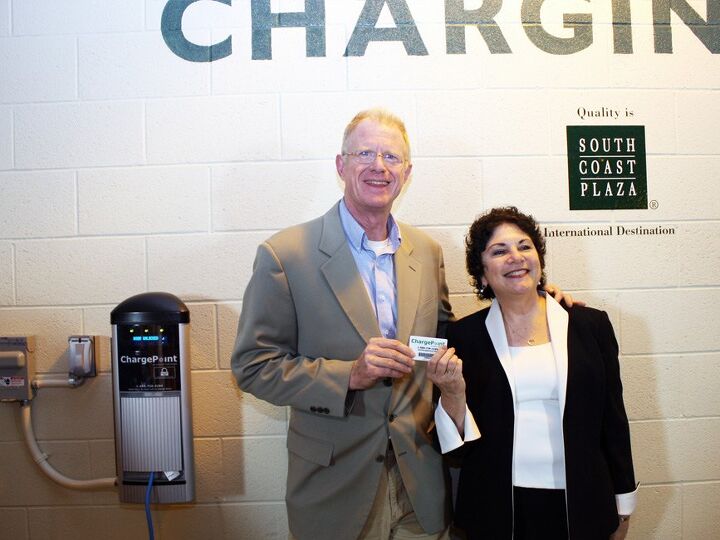

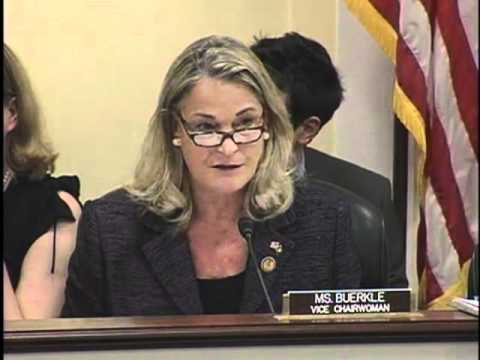
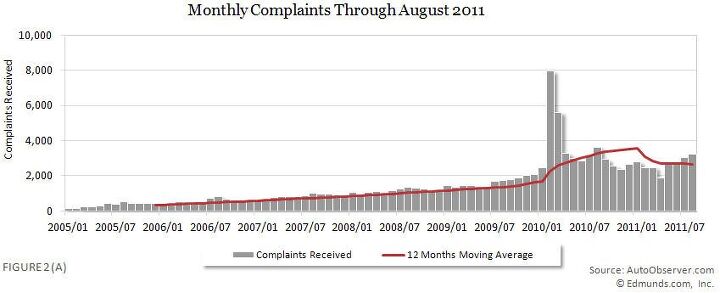
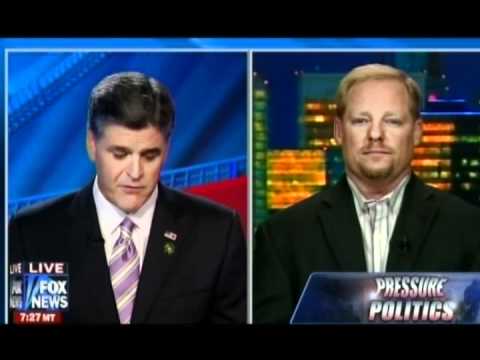
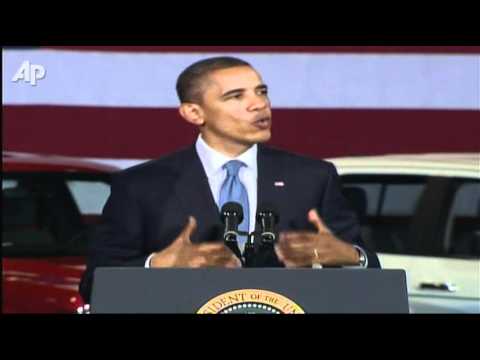
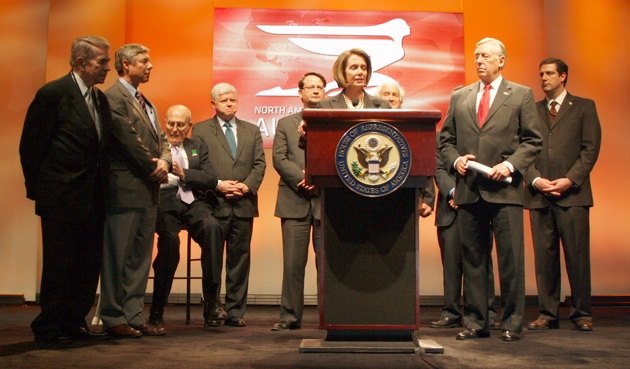
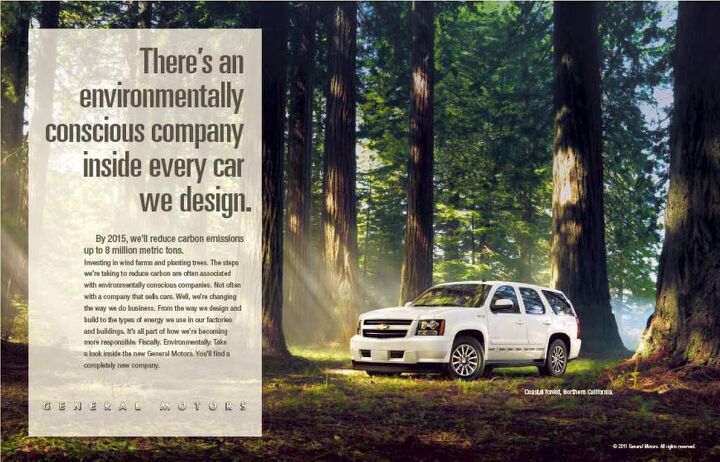
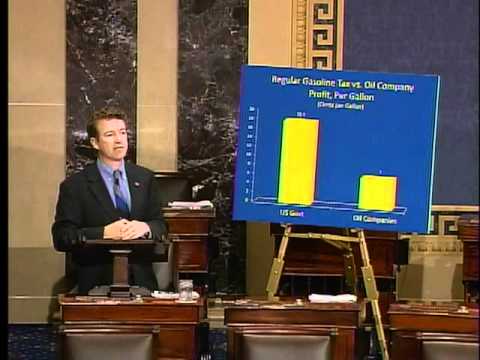
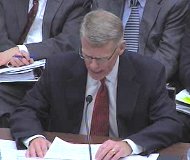
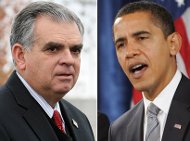

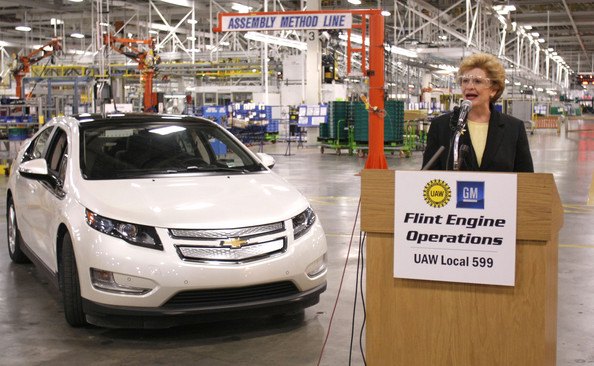
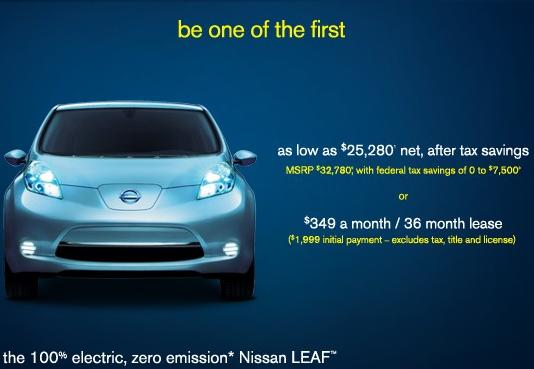




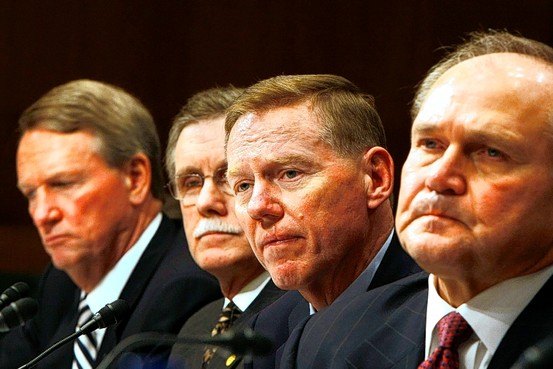
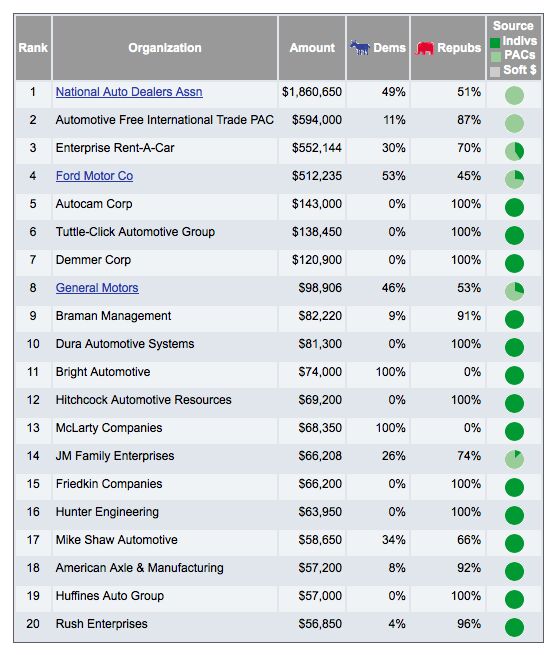


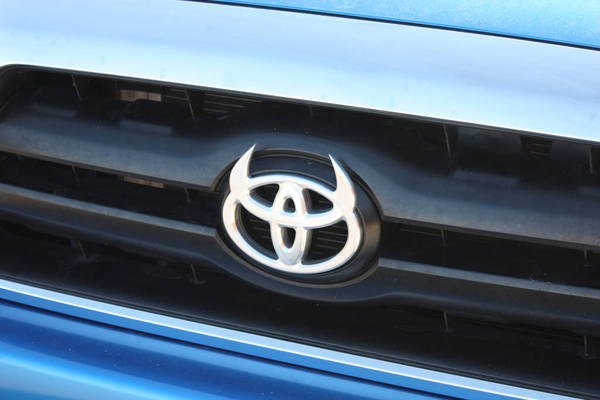
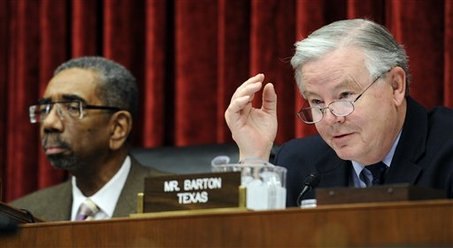


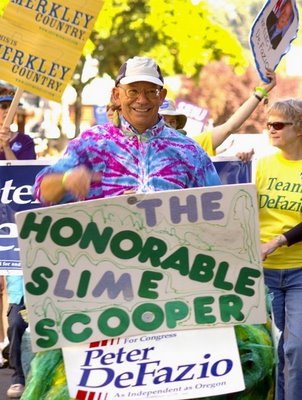
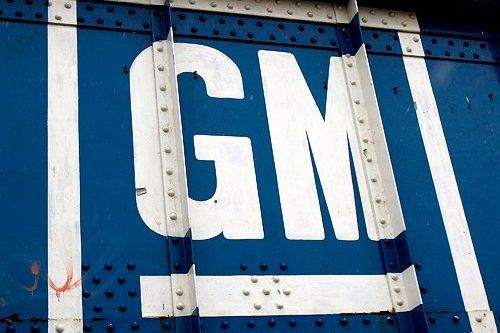






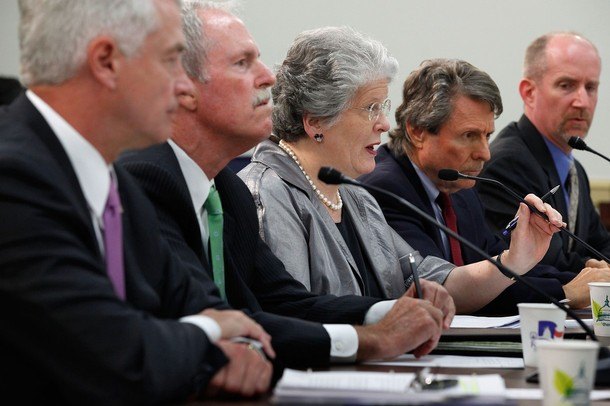













Recent Comments